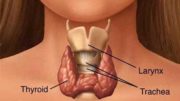Contributed Article by Living Health MD
Do you often walk into a room and forget why you are there? Do you have a hard time coming up with the names of familiar faces? Is it harder to concentrate on mental tasks than it used to be? Do you have trouble coming up with common words or remembering the book you read a week ago?
These symptoms are commonly referred to by some of my patients as “brain fog”, but they can be symptoms of early cognitive impairment and should not be ignored or dismissed as a “normal part of aging.” These conditions can lead to dementia or Alzheimer’s disease if left unchecked. What used to be considered an old person’s problem is now showing up in younger patients. The good news is, with proper testing and lifestyle changes, brain fog can be much improved and even reversed.
Get a free 15-minute phone Discovery Session with Dr. Drew Christensen.
What Causes Cognitive Impairment (Brain Fog)?
Many factors can lead to cognitive impairment, and you may be surprised to learn that it has less to do with your genes than with the lifestyle choices you make every day. Here are some of the most common causes:
- Consistently poor sleep
- Poor diet
- High sugar intake, leading to insulin resistance and diabetes
- Medications
- Thyroid Disorders
- Toxicity
- Previous head injury
- Hormone dysfunction
- Lack of exercise
- Chronic infection
How to Improve Cognitive Function
 If you have any of these symptoms, there are things you can start doing today to help eliminate your symptoms. You can start by going to see your doctor for help finding hidden causes like insulin resistance or thyroid/hormone imbalances.
If you have any of these symptoms, there are things you can start doing today to help eliminate your symptoms. You can start by going to see your doctor for help finding hidden causes like insulin resistance or thyroid/hormone imbalances.
Dr. Christensen, at Living Health MD, can help. Get a free 15-minute phone Discovery Session by clicking here.
 Here are some things you can do at home:
Here are some things you can do at home:
- Make sleep a priority – You need 7-8 hours consistently (follow your circadian rhythm)
- Eat whole foods – lots of vegetables, fruit, lean protein, and good fats like olive oil, salmon, and avocados
- Get regular exercise – it doesn’t have to be high intensity, just get up and move for 30 minutes a day!
- Do new, fun activities that challenge your brain – these can be games, puzzles, and riddles, or simple eye/hand coordination exercises like ping pong or foosball
By making these simple changes to your daily habits, your brain function will improve, as will your overall health.
 If you would like personalized guidance in taking control of your health, call Dr. Drew Christensen at Living Health MD, 928-424-4505. He’ll spend the time to get to the heart of your health!
If you would like personalized guidance in taking control of your health, call Dr. Drew Christensen at Living Health MD, 928-424-4505. He’ll spend the time to get to the heart of your health!
Sponsored Article













